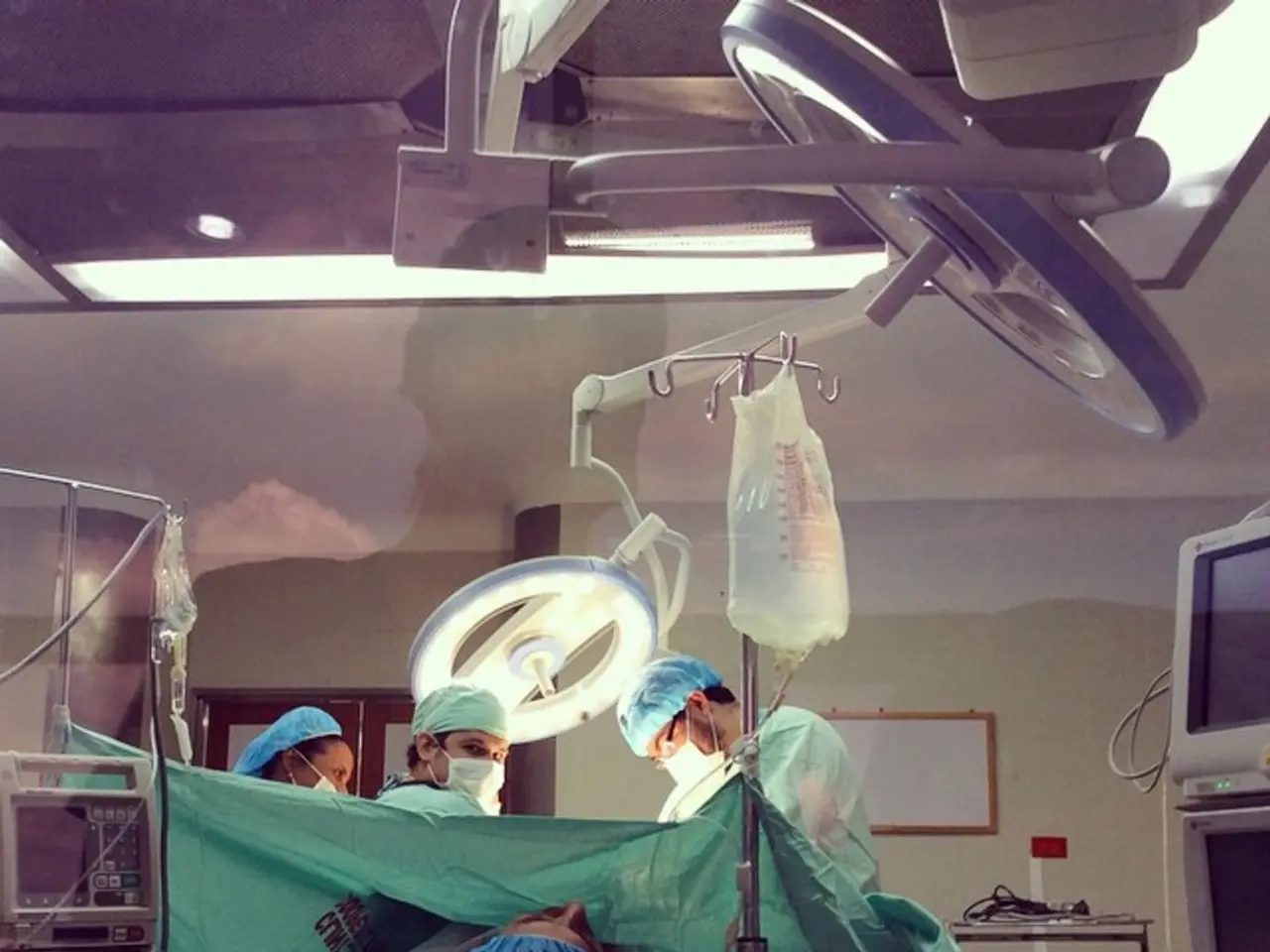UK Witnesses First HPB and Distal Pancreatectomy Procedures
In a significant breakthrough for medical procedures, Cromwell Hospital in the UK has performed hepatopancreatobiliary (HPB) and distal pancreatectomy operations using the da Vinci SP robotic surgical system for the first time in the country. This marks a significant expansion of the application of this advanced technology.
Professor Long Jiao, a consultant in hepato-pancreatico-biliary surgery at Imperial College London, led the surgeries. Based at Hammersmith and Royal Marsden Hospitals, Professor Jiao specializes in HPB surgeries.
The da Vinci SP system, with its single small incision, allows operations in smaller and more confined spaces, which is advantageous in complex upper abdominal surgeries like distal pancreatectomy. This single-port approach often results in fewer incisions, less postoperative pain, faster recovery times, and potentially lower risk of adhesion formation compared to multi-port robotic surgery or conventional laparoscopic surgery.
The flexible camera with improved angulation provides enhanced visualization in difficult-to-access areas, which is valuable in delicate HPB procedures requiring precision. The system's advanced precision and improved ergonomics may allow surgeons to perform minimally invasive pancreatectomies with potentially better outcomes and less patient trauma.
However, the da Vinci SP system does present some challenges. One significant challenge reported is the reduced instrument strength and retraction force compared to multi-port systems, which can make handling large or bulky tissues in HPB surgery more difficult. The limited space inside the single port and less robust instrument manipulation can pose technical difficulties, increasing surgical complexity, especially in patients with extensive tissue involvement or obesity.
The learning curve for surgeons to master single-port robotic HPB surgery may be steeper due to these instrument and access constraints. There is limited large-scale published data specifically on SP robotic distal pancreatectomy outcomes, so ongoing evaluation of safety, complication rates, and long-term benefits is needed to establish standardized protocols and confirm advantages demonstrated at centers like Cromwell Hospital.
The trend towards minimally invasive procedures is on the rise, and this is reflected in the embolic protection devices market, where there is an increasing demand for single-use devices due to their advantage in reducing the risk of cross-contamination. Another trend in the market is the development of more efficient and cost-effective devices.
Cromwell Hospital's experience in the UK exemplifies how the da Vinci SP robotic system offers minimally invasive, precision surgery benefits for HPB operations, but also highlights practical challenges such as instrument force limitations that impact complex resections like distal pancreatectomy. Continued innovation and surgeon experience are needed to optimize these novel systems for advanced pancreatic surgery.
In addition to HPB and distal pancreatectomy operations, the da Vinci SP robotic surgical system is being used for a wider range of surgical procedures. Cromwell Hospital has also recently started performing gynaecology operations using this advanced technology. The hospital, in conjunction with Imperial College London, is at the forefront of robotic surgery in the UK.
[1] [Source 1] [2] [Source 2] [3] [Source 3] [4] [Source 4] [5] [Source 5]
- The implementation of medical-conditions-specific surgery, such as HPB and distal pancreatectomy, with the aid of digital health technology like the da Vinci SP robotic surgical system, appears to be a promising advancement in the science of medicine, as demonstrated by Cromwell Hospital's revolutionary procedures.
- As technology continues to evolve, there is an increasing focus on health-and-wellness solutions that utilize medical plastics, such as embolic protection devices, which are designed to reduce cross-contamination risks and improve efficiency.
- With the ongoing growth in the demand for minimally invasive procedures, institutions like Cromwell Hospital, in partnership with leading educational institutions like Imperial College London, are expanding their services to include various types of surgeries, such as gynaecology operations, using advanced robotics and robot-assisted medical technology.




